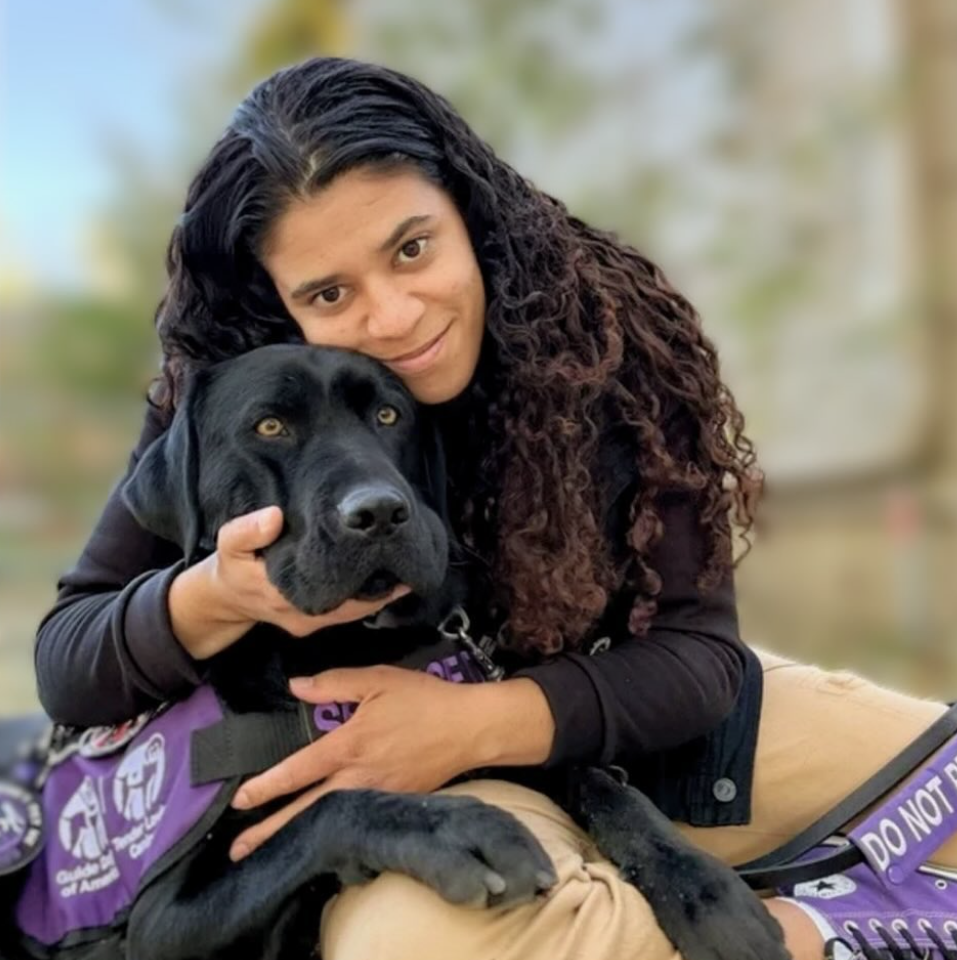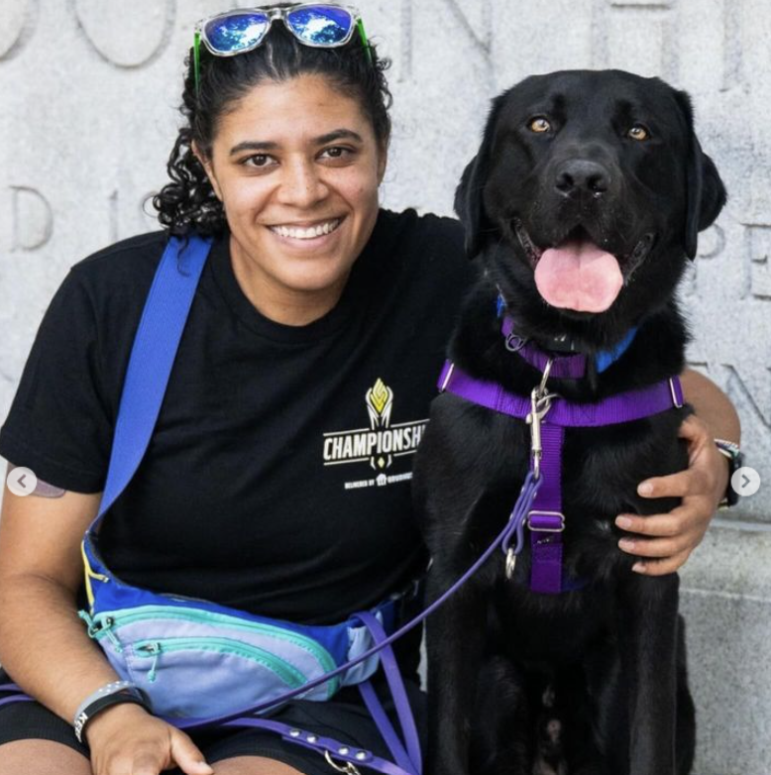Restoring the Spark of a Veteran
Disclaimer: This article discusses military sexual trauma (MST) and its effects on veterans. The content may be triggering for some readers. If you or someone you know is struggling with MST, please consider reaching out to a mental health professional or
support organization.
Army veteran Kris sought a fresh start. After over a decade in New York City—following several challenging years—she craved space and quiet. So, in the summer of 2024, she moved to Colorado Springs.
Joining her is one of Guide Dogs of America | Tender Loving Canine’s (GDA|TLC) expertly trained service dogs, Ziggy, a playful black lab with amber eyes. Wherever he goes, Ziggy brings joy, even catching the attention of The Dogist, a famous social media account dedicated to dogs. Although Kris and Ziggy now have hope, their journey hasn’t been easy.
Walking Through Trauma
In 2011, Kris joined a prestigious National Guard infantry unit after a brief Army stint. She was the first female medic to enter the unit and had achieved perfect scores on her physical fitness tests. Still, she grappled with the expectations to prove herself because she was a woman.
“I had a big job to represent women,” Kris recalls. “I would carry the same weight as the guys in rucksacks while also carrying my medical bag.”
Kris’s relentless drive helped her rise to the challenge. “I call it my spark,” she says. “It pushed me to try and be the best I could be.”
That was until 2017 when the unimaginable happened. While deployed in Ukraine, Kris was the victim of repeated sexual assaults by her platoon sergeant. With nearly 9,000 reported sexual assaults in 2022 military sexual trauma remains a prevalent issue. Trust in the military justice system is low. A recent Brown University study reveals that actual assault rates may be two to four times higher than the Department of Defense estimates. The abuse left Kris with profound emotional scars. “I felt like my whole life was flipped upside down,” she says. Forced to encounter her perpetrator frequently, she suffered panic attacks and began self-medicating. Her college grades plummeted.
Finally, Kris went AWOL for two months before deciding to report the incident. Reporting didn’t bring the relief she expected. She was forced to relive her trauma repeatedly before authorities took action.
“The PTSD from being interviewed might have been worse than the actual PTSD from getting assaulted,” she shares. “I became a completely different person; I was not Kris anymore…I was a different, darker version of myself.”
A Turning Point
Amid her pain, one thing offered hope: dogs. Having raised puppies for service. In the past, she turned to dog training with BluePath Service Dogs as part of her healing. “There’s so much reward in seeing dogs understand what you teach them,” she says. “It’s a relationship unlike any other.” She adds, “My job training dogs was the only thing that kept me alive.” In 2019, Kris applied for a service dog from GDA | TLC, but finding the right dog to handle the hectic environment of New York city was going to take some time.
After two years of waiting, Kris received a call in 2021. GDA | TLC had found her match: a bright-eyed black lab named Ziggy.
“We had an immediate bond,” says Kris. “He has these light orange-yellow eyes that ease your spirit. When you look into them, you think about the good things.”
A Light at the End of the Tunnel
Since being paired with Ziggy, Kris has achieved goals she once thought impossible. Before meeting Ziggy, panic attacks kept Kris from even sitting through a lecture. Now, she has not only earned her bachelor’s degree with a perfect 4.0 GPA but is also pursuing a second degree in Exercise Science.
Today, Kris is checking off one goal after another. She bought a car and a house and moved to Colorado Springs after 12 years in New York City. Most importantly, she has dramatically reduced her reliance on anxiety medications.
“Before I got him, life was just going through the motions. I don’t go through the motions anymore. Now, I have goals.”
Just a few years ago, such a move would have felt impossible. But Ziggy’s playful nature brings light to dark moments. “Even when I’m not feeling so great, I can chuckle at his antics. He makes situations easier by just being himself. He’s a goofball,” she says.
Kris’s story reminds us that while the path to recovery is challenging, the love and support of a service dog can help illuminate the way forward. Her bond with Ziggy has helped her rediscover herself and rekindled her passion for life.
“He helped me find that piece of myself that I felt I was missing for five years,” she says.
Editor’s note: We would like to extend a special thank you to Kris for sharing her story for this newsletter. Her courage and bravery in discussing these experiences is not only inspiring but vital to raising awareness about an issue that affects countless service members.
Kris’ journey is a testament to the transformative power of service dogs.
Your generosity has brought life-changing transformations to individuals like Kris.
About Guide Dogs of America | Tender Loving Canines
Guide Dogs of America | Tender Loving Canines provides expertly trained service dogs to individuals and families at no cost. Learn more about our programs by visiting our page HERE.









